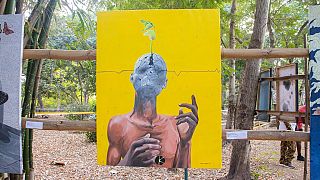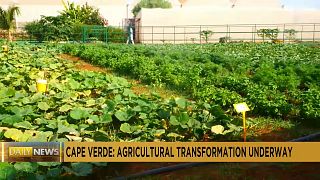Tanzania
With a recurring drought pressurising communities who keep cattle in northern Tanzania, a group of Maasai women have started producing honey to generate additional income, ensuring their children’s future and helping to regenerate the forest.
“I have benefited a lot from beekeeping. I bought five goats which are producing milk for us, I have also bought a bed and educated my children. This year, my plan is to build a house,” says beekeeper Maria Shinini.
It has taken some time. Maria began with five hives and equipment, but today her business is flourishing.
Together with the other women, they now have 76 hives on a communal plot on the outskirts of the Monduli district in the Arusha region.
They receive training from an umbrella network of smallholders, farmers, and pastoralists, supported by the Forest and Farm Facility, a partnership between the Food and Agriculture Organization, the International Union for Conservation of Nature, as well as the International Institute for Environment and Development and AgriCord.
Decades of recurring drought due to climate change have degraded the landscape and reduced the pasture available for livestock. Introducing bees is one initiative to regenerate the landscape.
In their training, Maria and the other women have learnt that taking care of the vegetation is a crucial element in the care and management of their bees
“It is of great importance that our environment is taken care of, right from the water catchments. So, our training goes hand in hand with these aspects of the environment, taking care of the vegetation so that the bees can get their food. Because there is no other source of food,” says trainer Majaliwa Mwashuve.
The new beekeepers have also received training on how to be smart businesspeople, producing, labelling, and branding their own products to maximize their value.
“Previously their thought was that they harvest honey, then sit and wait for customers during a season. But things are different now because they can do business all through the year as a result of the value chain. They harvest the honey, then engage in other honey product businesses across the year through value addition,” says Mwashuve.
They have also learnt to combine forces with other beekeepers to access new markets. As a result of this collaboration, one new product they are considering is “garlic honey”.
Honey is big business in Tanzania, but traditionally it is only Maasai men who do the job. Maria and her fellow women beekeepers say that, as they go from strength to strength, keeping bees and producing honey has resulted in greater respect for them in the community.
“People now know that even Maasai women can do big things,” she says.












01:09
Tanzania: Opposition leader Freeman Mbowe released on bail after arrest
01:29
COP29: Activists make final push for a finance deal up to the challenge
01:11
Climate crisis takes centre stage at G20 summit in Brazil
01:38
COP29: What next for Africa's energy transition?
01:48
Mali's former environment minister launches plan to protect forests
11:05
New era of sovereignty in Mali's gold sector [Business Africa]